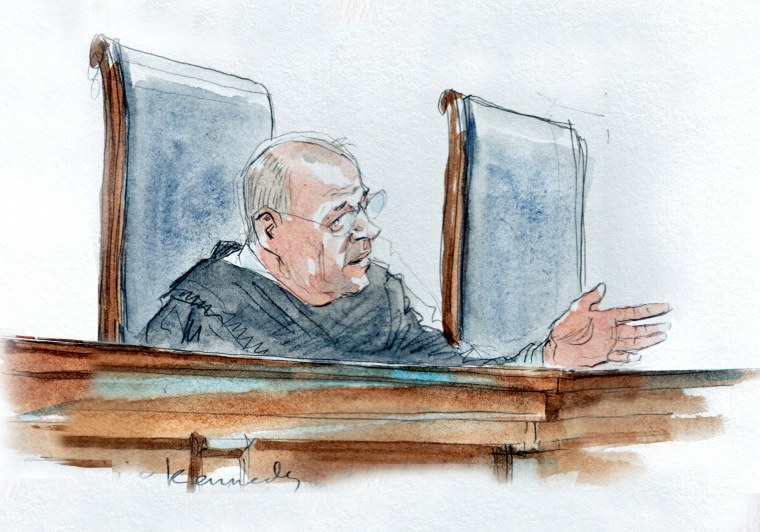The U.S. Supreme Court appeared likely Monday to rule against unions representing nearly ten million state government employees.
The justices heard courtroom argument on whether state government workers who choose not to join a union can nonetheless be required to pay a share of union dues to cover the cost of negotiating contracts.
At stake is the future power and financial health of public sector unions in the 23 states where they have a duty to bargain for both members and non-members alike.
The Supreme Court has long held that requiring non-union members to pay the full amount of union dues would violate their right of free expression, forcing them to subsidize a union's political activities whether they agree with its goals or not.
But since 1977, the Court has said non-union employees can be required to pay a portion of union dues to cover the cost of collective bargaining and prevent "free riders" — workers who get the benefits of a union contract without paying for it.
Now, in a case brought by non-union teachers in California hoping to get the earlier decision overturned, the justices are asked to decide whether even that requirement violates free expression.
Judging from the comments during Monday's argument, a majority of the justices seemed prepared to overrule the earlier case.
Related: Supreme Court to Hear Case on Union Fees

One of those suing is Rebecca Friedrichs, a third grade teacher from Los Angeles. She says the union takes positions she opposes, such as protecting teachers with seniority. Having to pay to support the union, she argues, violates her free speech rights.
Justice Anthony Kennedy expressed just that view during Monday's argument.
"Many teachers strongly, strongly disagree with the union position on teacher tenure, on merit pay, on merit promotion, on classroom size," Kennedy said.
The requirements to pay even a portion of the dues "require that employees and teachers who disagree with those positions must nevertheless subsidize the union on those very points."
Lawyers for California, the state teachers union, and the Obama administration urged the court not to overturn its earlier ruling, which held that a state's interests in an orderly workplace outweigh the modest interference with employee expression involved in paying a portion of union dues.
The positions the union takes in negotiating contracts involve "bread-and butter employment issues. Collective bargaining does not resemble the wide-ranging, open, and public debate that the First Amendment traditionally protects," said David Frederick, the lawyer for the union.
The union had hoped it might find some support from Justice Antonin Scalia, who had suggested in the past he might be responsive to its position.
But Scalia offered no such lifeline Monday.
"The problem is that everything that is collectively bargained with the government is within the political sphere, almost by definition. Should the government pay higher wages or lesser wages? Should it promote teachers on the basis of seniority? All of those questions are necessarily political questions," he said.
Therefore, Scalia said, requiring non-union members to pay the union to take those positions is a violation of the First Amendment.
A loss for the unions "could have a very profound impact on unionism in the United States," said Jeff Grabelsky, who studies the issue for the Worker Institute at Cornell University.
"It's clearly part of a larger effort to undermine public sector unions, which is really where the strength of the labor movement stands today."
Related: Supreme Court Term Likely to Yield Conservative Victories
Supporters of the union position said in court briefs that represented workers generally make more money. A study by the National Women's Law Center found that women represented by public sector unions are paid 24 percent more and are more likely to have employer-based health insurance. More than half of union-represented workers in the public sector are women.
The Supreme Court's decision is expected by late June.
